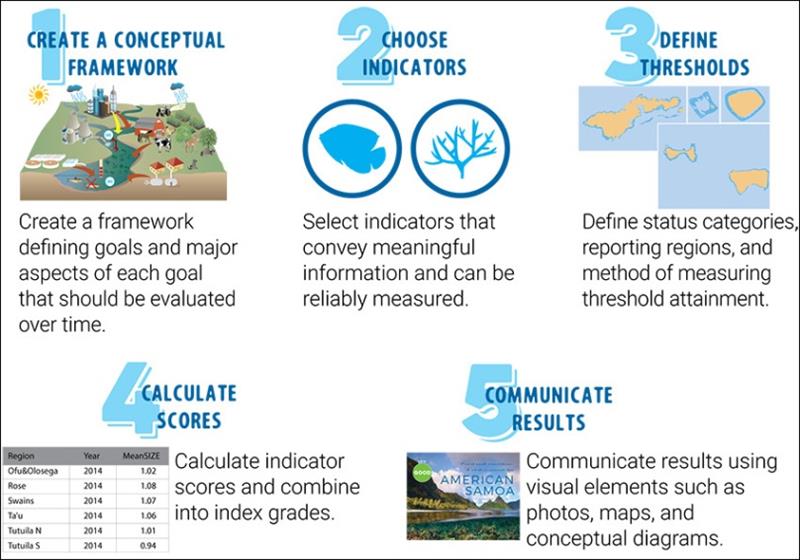
U.S. coral reef health assessed on a national scale for the first time
by NOAA Fisheries 6 Dec 2020 18:34 UTC

5-Step process was used to create the status reports © NOAA Fisheries
NOAA's Coral Reef Conservation Program (CRCP) supports the National Coral Reef Monitoring Program (NCRMP) throughout the U.S. Pacific, Atlantic, Gulf of Mexico, and Caribbean coral reef areas.
This program is a strategic framework for conducting sustained observations of biological, climatic, and socioeconomic indicators in U.S. states and territories. The resulting data provide a robust picture of the condition of U.S. coral reef ecosystems and the communities connected to them.
A key component of this program is a periodic, national-level assessment on the status and trends of U.S. coral reef areas.
To develop these status reports for the first time, CRCP partnered with the Integration and Application Network (IAN) at the University of Maryland Center for Environmental Science (UMCES).
The primary purpose of the CRCP status report products is to communicate the status and trends of U.S. coral reefs to Congress, NOAA leadership, and the interested public. Individual status reports for each of the Atlantic and Pacific jurisdictions are available, as well as a national summary report that contextualizes all of the jurisdictional reports.
Ecosystem condition status reports are a common approach to synthesizing a large amount of ecosystem monitoring data into a public-friendly report that can be understood by decision makers, managers, and scientists alike.
Fundamentally, status reports help answer the question "How is the ecosystem doing?" The goals of a status report are to: provide a broad-level assessment, communicate complex information, use real data, and engage communities. To advance this effort, CRCP and IAN-UMCES brought together science experts, natural resource managers, and other stakeholders from NOAA and local jurisdictions to develop these reports.
National Coral Reef Status Report Download
For more information on the data used and the process for calculating scores please see the
National Coral Reef Status Report Scoring Methodology and/or contact Erica Towle.
Atlantic Report Download
- Flower Garden Banks
- Florida
- Puerto Rico
- U.S. Virgin Islands
For more information on the data used and the process for calculating scores please see
Atlantic methodology document and/or contact Erica Towle.
Pacific Report Download
For more information on the data used and the process for calculating scores please see
Pacific methodology document and/or contact Erica Towle.